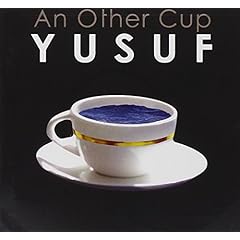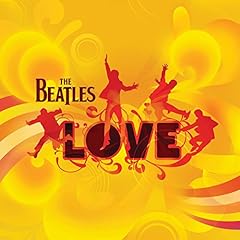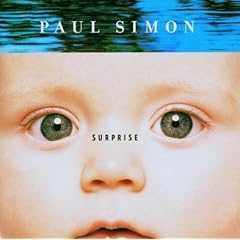Reflecting on the Dream
It's been 40 years since Martin Luther King Jr. preached his most famous sermon, one that has reverberated through the years to touch millions. Bryan Robinson was 19 at the time, but as he explains in this essay, King's "I Have a Dream" speech came too late for Robinson's grandfather.
At the time, Grandpa was a 41-year-old frustrated engineer forced to work in the Post Office. A graduate of Stuyvesant High School — one of New York City's best — he wanted to attend a college in the City University of New York system. Segregation was not legalized in the North as it was in the South, but racism still existed in subtle ways.
The CUNY schools did accept black students. But my grandfather believed that they only accepted bourgeois blacks whose parents held prestigious jobs and whose complexion was not too dark. Grandpa didn't meet those standards.
As for Robinson's grandmother:
Nana was a housekeeper for a white family in Washington Heights. As a child, my mother often would accompany Nana to work, and she would witness some life lessons in role-playing.
In front of her employers, Nana — who was born in Virginia — was the subservient family maid who knew her role and did her job. Outside work — and sometimes under her breath at work — Nana would mutter insults at employers and curse their dirty underwear.
Forty years later, Robinson writes, the time of King's speech and his grandparents' life seems like ancient history. The passage of time has watered down its impact. "Dr. King's legacy is assured," he adds, "but perhaps his memory has become a cliche to my generation and those who have followed. Maybe there's less of an appreciation for history. Maybe seeing the same black-and-white footage of Dr. King delivering the same speech during Black History Month and on Martin Luther King Day just doesn't strike a chord any more."
:: Andrew 09:22 + ::
...
bloggedy blog
bloggedy blog recommends
bloggedy pod (my podcast page)
Independent hotels
in Missouri
eMusic's Power Charts: The Most Interactive Music Charts Online.
In rotation
What I've been listening to lately. Click album cover or hyperlink to hear track samples and learn more.
 Rickie Lee Jones, Sermon on Exposition Boulevard
Rickie Lee Jones, Sermon on Exposition Boulevard
 Patty Griffin, Children Running Through
Patty Griffin, Children Running Through
 Of Montreal, Hissing Fauna, Are You the Destroyer?
Of Montreal, Hissing Fauna, Are You the Destroyer?
 Field Music, Tones of Town
Field Music, Tones of Town
 De Bossen, The Girl Collection
De Bossen, The Girl Collection
 Cold War Kids, Robbers & Cowards
Cold War Kids, Robbers & Cowards

Frida Hyvonen, Until Death Comes

Tratore Basics Vol. 2, Novo Rock Brazil
 Yusuf: An Other Cup
Yusuf: An Other Cup
 The Beatles: Love
The Beatles: Love

The French Kicks: Two Thousand

The Blow: Paper Television

Freedom Haters Unite! A Bloodshot Records Sampler

Swan Lake: Beast Moans

Prototypes: Prototypes

Scanners: Violence Is Golden

Voxtrot: Mothers, Sisters, Daughters & Wives

Voxtrot: Your Biggest Fan

Macon Greyson: Translate

The Evens: Get Evens

Veruca Salt: Veruca Salt IV
 Bob Dylan: Modern Times
Bob Dylan: Modern Times

Pink Tuscadero: Look Your Best

Leigh Nash: Blue on Blue

Yo La Tengo: I Am Not Afraid of You and I Will Beat Your Ass

The Hold Steady: Boys and Girls in America

Bobby Bare Jr.: The Longest Meow"

The Be Good Tanyas: Hello Love

The Lemonheads: The Lemonheads

Ben Kweller: Ben Kweller

The Pipettes: We Are the Pipettes
 Paul Simon: Surprise
Paul Simon: Surprise

Exene Cervenka and the Original Sinners: Sev7en
 Johnny Cash: American V: A Hundred Highways
Johnny Cash: American V: A Hundred Highways

The John Doe Thing: For the Best of Us

The Fondas: Runaway Bombshell

Buzzcocks: Flat Pack Philosophy

Asobi Seksu: Citrus

Tapes 'n Tapes: The Loon

Various Artists: 2006 Pitchfork Music Festival Sampler (24 free tracks)

The Futureheads: News and Tributes

The Bottle Rockets: Zoysia

Camera Obscura: Let's Get Out of This Country

Art Brut: Bang Bang Rock & Roll

Drive By Truckers: A Blessing and a Curse

The Raconteurs: Broken Boy Soldiers

Belle and Sebastian: The Life Pursuit

Cat Power: The Greatest
bloggedy tags
from our sponsors
for your viewing pleasure
24x7
rocketboom
the Richard Show



 Simon Dawes,
Simon Dawes,